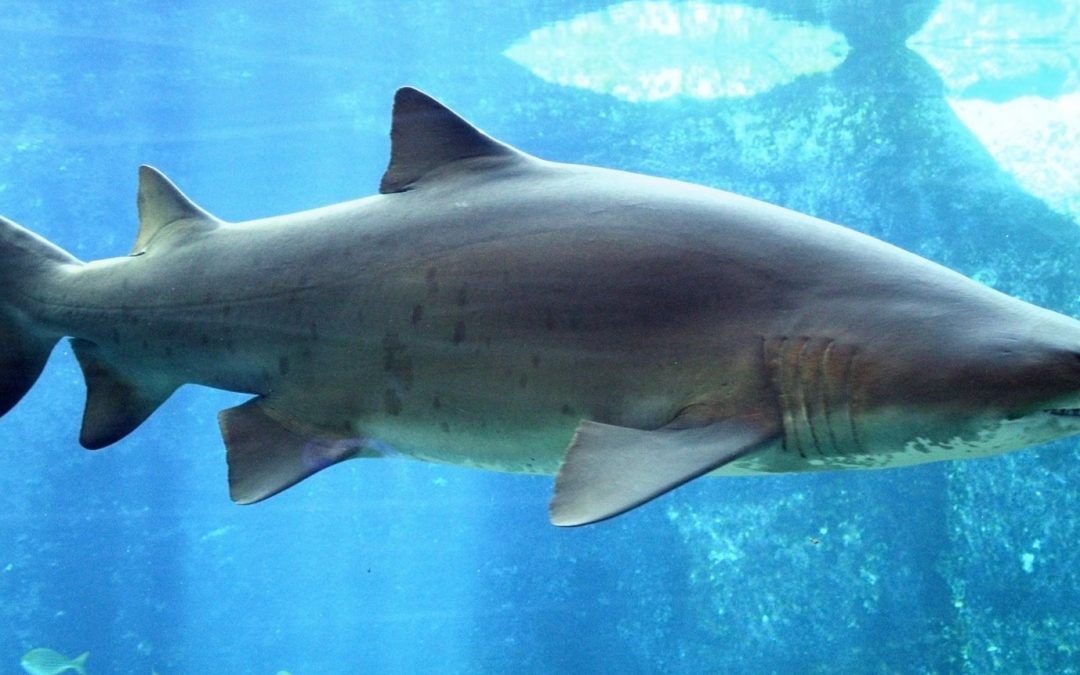
One of the main ideas that we try to communicate here at the Office for Sustainability is that sustainability is more than a niche topic. It is not something only for the tree-hugger and its pursuit cannot be dismissed as only the responsibility of the remarkably passionate. The global adoption of sustainability thinking not only effects all of us, but relies on every last one of us to do what we can to improve the earth we live on. For some of us this may look like recycling and using public transportation, or getting a minor in sustainability.
 For Yao Ming this looks like convincing the World’s most populated country to rethink their devastating behavior towards sharks.
For Yao Ming this looks like convincing the World’s most populated country to rethink their devastating behavior towards sharks.
China, population 1.3 billion, is known for many things—one of which is its cuisine. While some Chinese dishes may challenge the western pallet, a few dishes have drastic environmental impacts that make them truly unappetizing.
Chief among these villains is “Shark Fin Soup”

A bowl of Shark fin soup
Shark fin soup has a long history in China. Notoriously expensive, the soup was historically eaten by emperors, and more recently at weddings and by the elite. Around the turn of the millennium, as more and more Chinese moved into the middle-class, the demand for this social symbol of success sky-rocketed. This was not a good thing for shark populations.
Shark Fin Soup—as the English name implies—is made from the dorsal fins of sharks, with each fin only producing a few bowls of soup. Which (if you follow my math) means that as millions of more people start craving a bowl, millions of more sharks are killed to satisfy that craving. It is estimated that 73 million sharks are harvested to make the soup each year. In some parts of the ocean, shark populations have dropped 90% since 2000. While this statistic alone is upsetting, the horrific manner in which fins are harvested from sharks is even worse. We are left with a very bleak picture—sharks are being brutally killed off faster than they can reproduce and the major population that drives demand for their fins is only getting bigger. What can be done?
Enter Yao Ming
Ming is best known as the massively tall basketball player from China who rocked the NBA during his 2002 – 2011 career. But Ming might be making a bigger splash off the courts than he ever did on. You see, Ming is a national superstar in China, which means that when he—in partner with Wild Aid—began publicly denouncing Shark fin soup back in 2006, the people of China listened.
According to a 2014 report, consumption of shark fin soup is way down. The survey showed that most of the consumers—over 75%—did not know the soup was made with shark (the Chinese name for the soup is the much less obvious “fish wing soup”). When 85% of the Chinese consumers surveyed said they gave up shark fin soup within the past 3 years, a whopping 2/3 claimed Ming’s awareness campaigns—including the public service announcement above—as the thing that prompted them to give it up.
The report even quotes a shark-fin salesperson claiming that “Yao Ming’s commercial impact single-handedly smashed [his] business.”
The Chinese buying trends of shark fin soup continue to decline today, leading many experts to consider shark fins a dying business. Perhaps spurred by his success in saving the sharks, Yao Ming has now moved his sights to a new conservation effort. He has teamed up with David Beckham and Prince William in Africa to denounce the market for ivory and rhino horn.
There is more to the story though than just Yao Ming saving sharks. It also gives us an excellent example on how we can each individually work for global sustainability. Yao Ming knew that he had an influential voice in China. He used that influence to effect positive change. While you might not have the ear of an entire country, each of us does have our own sphere of influence—whether in a sorority house, RSO, business, or group of friends—and we can all take steps to not only live our lives more responsibly, but encourage others around us to do the same.
Want to learn how to adopt sustainability practices in your own life? Click here
Want to learn more about endangered animals? Click here
Want to get involved in local sustainability initiatives? Click here
